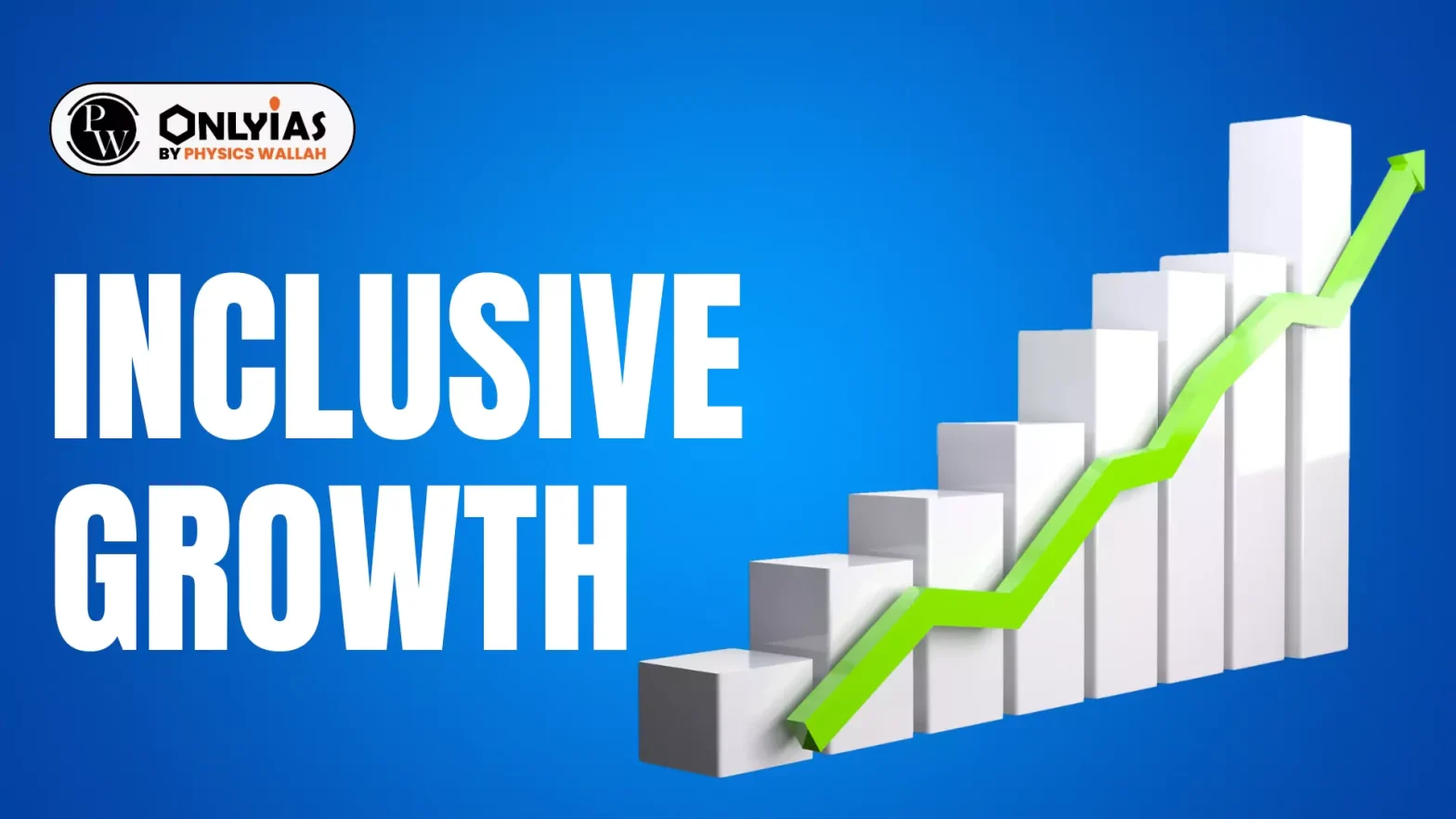According to the OECD, inclusive growth is economic growth that creates opportunities for all segments of the population and fairly distributes the dividends of increased prosperity, both in monetary and non-monetary terms, across society.
Key Elements of Inclusive Growth
- Employment Generation: Provides stable jobs and promotes progress.
- Poverty Alleviation: Lifts vulnerable individuals out of poverty.
- Skill Development: Expands educational and career opportunities.
- Agriculture and Industry: Agriculture needs to contribute more to GDP.
- Good Governance: Requires participation, rule of law, transparency, and accountability.
- Access to Essential Services: Includes healthcare, education, and sanitation.
- Economic Growth: Aiming for a $5 trillion economy can reduce inequality and create jobs.
- Social Development: Empowers marginalised groups.
- Financial Inclusion: Encourages savings and economic growth.
- Energy Security: Essential for sustained economic growth.
- Access to Justice: Ensures affordable legal access for all.
Check Out UPSC Modules From PW Store
Need for Inclusive Growth in India
- Industrial Development: Address slow industrial growth.
- Mass Poverty and Low Income: Widespread poverty and low per capita income.
- High Population: Challenges of managing a diverse, large population.
- Literacy: Low literacy rates, especially among females (74.04%).
- Infrastructural Issues: Inadequate infrastructure hindering progress.
- Poverty Reduction: India has the highest number of poor people.
- Group Equality: Inclusivity for SCs, STs, OBCs, minorities, women, and differently-abled individuals.
- Regional Balance: Equitable growth across states and regions.
- Agricultural Backwardness: Agriculture employs many but contributes little to GDP.
- Unemployment: High unemployment rates exacerbated by COVID-19.
- Poor Nutrition Levels: Addressing under-nutrition and a low Global Hunger Index ranking.
![]() 11 Sep 2024
11 Sep 2024

